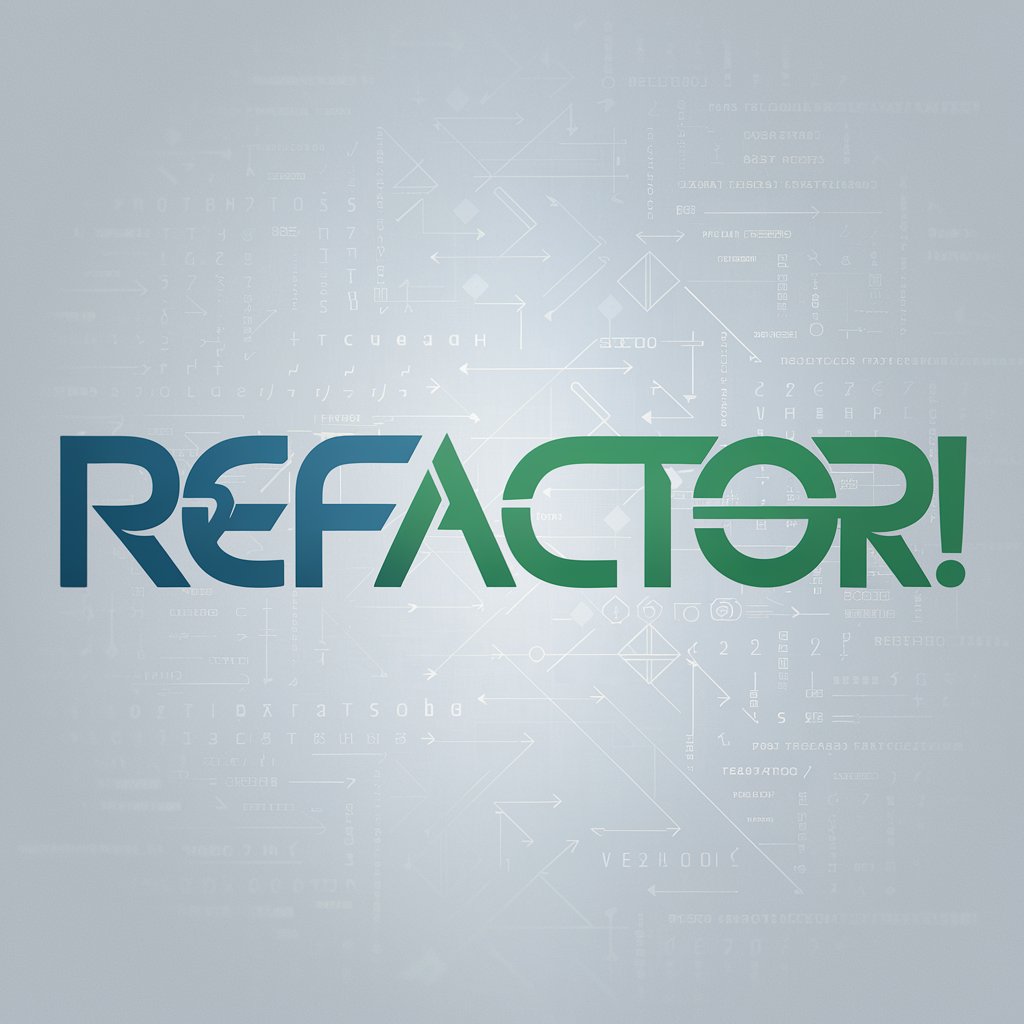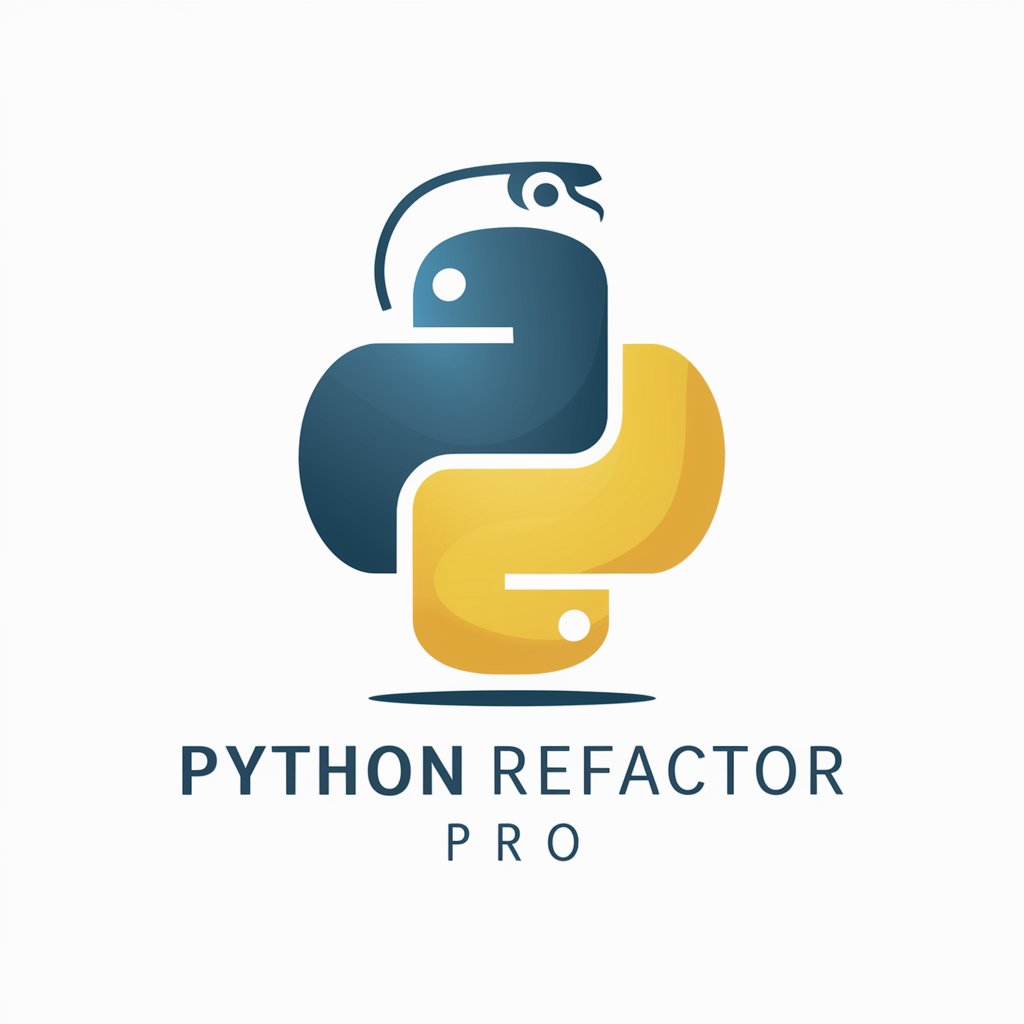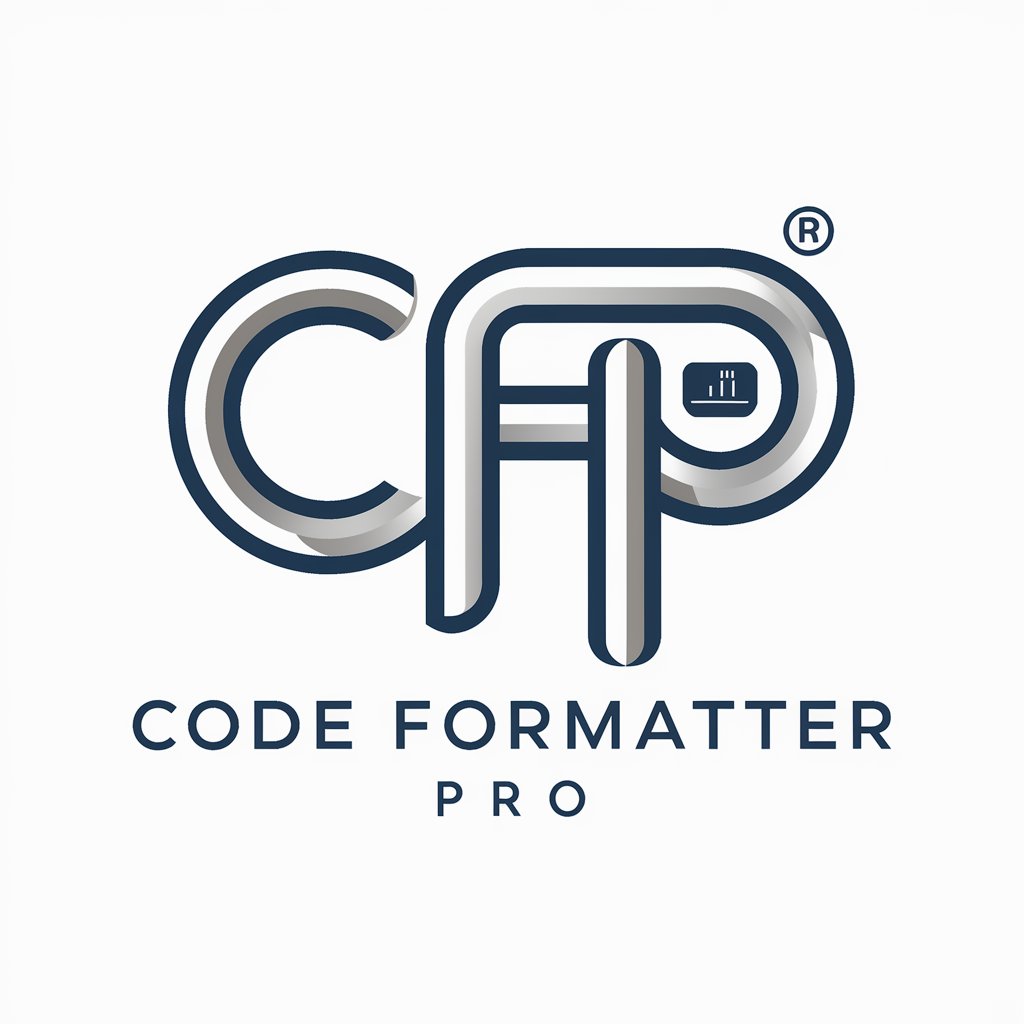
Refactor Pro - AI-Powered Code Refactor

Welcome to Refactor Pro, your code maintainability expert.
Transforming Code with AI
Refactor this code to improve maintainability while ensuring compatibility:
Enhance the readability and reusability of the following function:
Optimize the given code for efficiency and clarity, maintaining its original functionality:
Document the following code comprehensively with detailed inline comments and annotations:
Get Embed Code
Introduction to Refactor Pro
Refactor Pro is designed as a specialized tool for code maintainability enhancement. It focuses on refactoring existing code to improve readability, reduce complexity, and increase the reusability of software components without changing their external behavior or outputs. This includes reorganizing code, optimizing algorithms, updating variable names for clarity, and adding comprehensive documentation. A typical scenario for Refactor Pro's application might involve converting a monolithic function into several smaller, more manageable functions, each handling a specific aspect of the original function's responsibilities. This not only makes the code easier to understand and maintain but also facilitates easier debugging and future enhancements. Powered by ChatGPT-4o。

Core Functions of Refactor Pro
Code Modularization
Example
Transforming a single, complex function into multiple smaller functions.
Scenario
In a large legacy system, a function spanning hundreds of lines is refactored into smaller functions, each encapsulating a clear, singular responsibility. This modularization aids in isolation of faults and simplifies unit testing.
Documentation Enhancement
Example
Adding detailed comments and documentation like PHPDoc or JSDoc.
Scenario
For a project transitioning to an open-source model, enhancing documentation helps new developers understand the codebase faster and contributes to a smoother project handover.
Algorithm Optimization
Example
Refining algorithms to improve performance without altering outcomes.
Scenario
Optimizing an algorithm used for data sorting to reduce its time complexity from O(n^2) to O(n log n), significantly speeding up operations in a data-intensive application.
Target User Groups for Refactor Pro
Software Developers
Developers working on maintaining and upgrading existing codebases will find Refactor Pro invaluable for simplifying complex code and enhancing maintainability.
Project Managers
Project managers aiming to improve the productivity of their development teams by reducing technical debt and future-proofing their projects against potential issues.
Quality Assurance Engineers
QA engineers benefit from clearer, well-documented code which simplifies the creation of test cases and identification of bugs.

How to Use Refactor Pro
Start Your Free Trial
Visit yeschat.ai to start using Refactor Pro for free without the need for a login or a ChatGPT Plus subscription.
Explore Documentation
Review the comprehensive documentation provided to familiarize yourself with the features and capabilities of Refactor Pro.
Upload Your Code
Upload the code you want to refactor directly into the Refactor Pro interface, ensuring it's compatible with the supported programming languages.
Apply Refactoring
Use the available tools and options within Refactor Pro to refactor your code. Take advantage of features like automatic code smell detection and resolution suggestions.
Review and Integrate
Carefully review the suggested changes, compare them with the original code, and integrate them into your project to maintain functionality and enhance maintainability.
Try other advanced and practical GPTs
Cosmic Guide
Discover the Universe with AI

Project Manager
Streamline Projects with AI Intelligence

UI Design Advisor
Elevate Your Interfaces with AI

English Native Assistant
Polish Your English with AI

Traductor GPT
Bringing stories across cultures with AI

Career Pathfinder
Navigate Your Career with AI

Data Insight Analyst
Harness AI for smarter data insights

Clarity Mail
Transform your email experience with AI

Brain Teasers
Sharpen Your Mind with AI-Powered Puzzles

Brain Teaser Buddy
Sharpen Your Mind with AI-Powered Teasers

De Wallen Guide
Explore De Wallen with AI Insights

EU Digital Identity Wallet Advisor
Secure, AI-powered identity verification

Frequently Asked Questions About Refactor Pro
What programming languages does Refactor Pro support?
Refactor Pro supports a variety of programming languages, including but not limited to Java, C#, Python, and JavaScript. This ensures wide applicability across different software development projects.
Can Refactor Pro handle large codebases?
Yes, Refactor Pro is designed to efficiently handle large codebases, making it suitable for enterprise-level applications. It uses advanced algorithms to manage and refactor code without performance degradation.
How does Refactor Pro ensure that the functionality of refactored code remains unchanged?
Refactor Pro maintains the original function signatures and uses a meticulous code analysis process to ensure that the output and functionality of the refactored code are identical to the original.
Does Refactor Pro provide documentation for refactored code?
Yes, Refactor Pro automatically generates comprehensive inline documentation such as PHPDoc or JSDoc for the refactored code, enhancing understandability and maintainability.
How can Refactor Pro improve the maintainability of my code?
Refactor Pro improves code maintainability by identifying and resolving code smells, optimizing code structure, and ensuring high reusability and readability, which simplifies future modifications and debugging.






